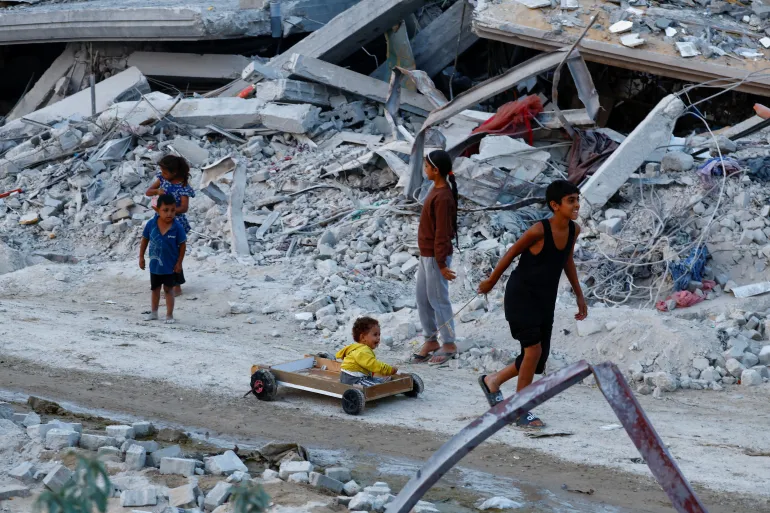
A Dutch appeals court has dismissed an attempt by human rights organisations to stop the Netherlands from selling weapons to Israel, ruling that the government has broad discretion over foreign policy and national security matters, even amid the ongoing conflict in Gaza.
The lawsuit, filed by ten pro-Palestinian NGOs, accused the Dutch state of failing to prevent what they described as potential “genocide” in Gaza, and called the government’s foreign policy toward Israel “clearly unlawful.” The groups sought a blanket ban on weapons exports, trained military dogs, and economic ties with businesses operating in the occupied Palestinian territories.
Court Decision and Reasoning
On Thursday, the Hague Court of Appeal rejected the appeal, stating that while there is a “serious risk that Israel will commit genocide against the Palestinian population in Gaza,” it is ultimately the government’s prerogative to determine policy:
“While it is plausible that there is a risk of genocide and serious human rights violations, it is not, in principle, up to the court to prescribe to the State what measures must be taken to prevent this.”
The court emphasized that the NGOs had not demonstrated that the Dutch government routinely failed to evaluate whether exported arms or dual-use goods could be used to violate human rights. The ruling also ordered the NGOs to pay legal costs.
Background of the Case
The NGOs referenced a January 2024 order by the International Court of Justice (ICJ), which warned that Palestinians in Gaza were plausibly being deprived of rights protected under the Genocide Convention of 1948. They argued that the Netherlands, as a signatory, has a legal duty to take all reasonable measures to prevent genocide.
Despite recognizing the “grave risk” of genocide, the Dutch court concluded that the government had already taken sufficient steps to discourage companies from operating in occupied territories and had carefully weighed cooperation with Israel.
Government lawyer Reimer Veldhuis stated during prior hearings:
“Every cooperation is cautiously weighed.”
The Dutch authorities maintain that most arms exports to Israel have been halted, with only limited components for defensive systems, such as the Iron Dome, still permitted.
Humanitarian Context
The court ruling comes amid a prolonged Gaza conflict, which has caused significant civilian casualties. Since October 2023, Israeli military operations in Gaza have reportedly killed at least 68,875 Palestinians and wounded 170,679. Meanwhile, at least 1,139 people were killed in Israel during the October 7, 2023, Hamas attacks, with over 200 taken captive.
Following a United States-brokered ceasefire last month, Israeli forces have continued operations in Gaza, killing at least 236 Palestinians and wounding over 600.
Implications for Dutch Foreign Policy
The Hague Court’s decision reinforces the principle that courts generally defer to governments on matters of foreign policy and national security, even when human rights concerns are raised. While the NGOs argued for a stricter interpretation of the Genocide Convention, the court concluded that the Dutch government has taken adequate measures to comply with international obligations.
The case highlights ongoing tensions between human rights advocacy and national security considerations, and underscores the complex legal and ethical questions surrounding arms exports to conflict zones.
Conclusion
The Dutch appeals court ruling allows the Netherlands to continue limited arms exports to Israel, despite ongoing concerns about civilian casualties in Gaza. Human rights groups have criticized the decision, but the court stressed that it is the government—not the judiciary—that must navigate the intersection of international law, foreign policy, and national security.
Key Takeaways:
- Dutch court rejects NGO appeal to halt arms exports to Israel.
- Hague Court of Appeal says the government has “considerable discretion” over foreign policy.
- NGOs cited potential genocide in Gaza under the Genocide Convention.
- Dutch government allows limited exports for defense systems like the Iron Dome.
- The Gaza conflict continues, with thousands of casualties on both sides.


Leave a Reply